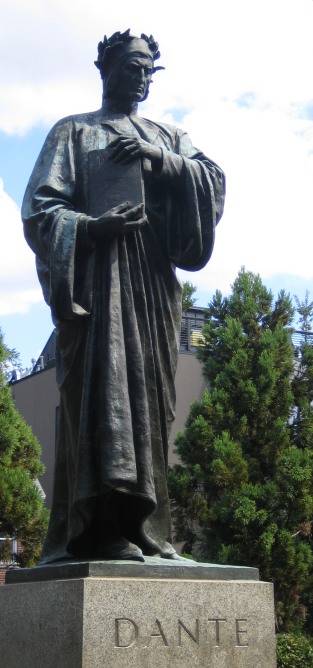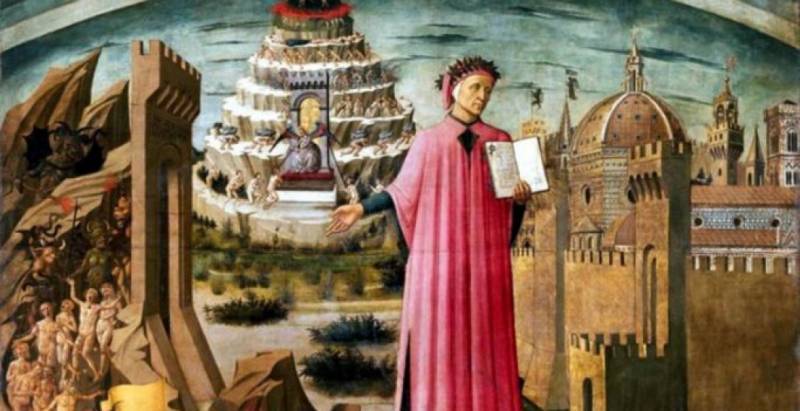Nel mezzo del cammin...
“Nel mezzo del cammin di nostra vita,/ mi ritrovai in una selva oscura (Midway upon the journey of our life,/ I found myself within a dark forest).” This powerful beginning could be enough to fall in love with the Italian language. With its musicality, its verbal intelligence, its expressive force.
In this time of globalization, when every identity is called into question, provoking fear and a sense of danger in people, we must ask ourselves: what is it that makes us Italian? Is it the tricolor flag? I would have to say no: it’s a very nice flag, but flags don’t say much about a people. Maybe religion? No, because the Catholic faith exists in other countries and that’s not what distinguishes us as Italian. Maybe it’s our territory then? It’s certainly an important piece of land, but borders can be fleeting and are redrawn many times after a war is lost or won.
What really sets us apart as a people, with our own history and identities, must be the Italian language. A language that was formed through great literature, such as The Divine Comedy, Orlando Furioso, The Decameron, the poems of Leopardi and Pascoli, The Malavoglia, Reeds in the Wind, and other works that have kept us company and that taught us how to think and speak in our language.
Recently, I must admit, Italian has grown more vulgar: because of how it’s used in mass communication, and because of the constant, senseless absorption of English terms from the world of technology. Machines speak English? And those who believe they dominate machines feel the need to cram their Italian with English words.
The fact that I’m against the introduction of foreign words into our beautiful language does not mean that I am opposed to learning foreign languages. On the contrary, I believe that English is the language of exchange in today’s world and must be learned well. I think that learning Spanish, French, Arabic or Chinese well, can help one move in the world of globalization. But beware of losing sight of one’s own language, because it is with that that we express our autonomy and our identity.
As far as foreigners are concerned, I see that Italian—which has fortunately remained undamaged from colonial expansionist projects—mother of a memory that remembers great movements of innovation like the Renaissance, the Risorgimento and the Resistance, is perceived as a tool for understanding the past, as well as for the friendly and conversational communications of the present.
It is not just my profession as a writer that brings me to this deep, affectionate and caring relationship with the Italian language. It is the understanding that we exist in so much as we speak and grow a language, written and spoken, full of historical memories and elaborate planning for the future. I don’t want to fall into rhetoric—that’s not me—but the love for one’s own language, I believe, is an essential aspect to feeling like citizens of a country and its destiny. Where our beautiful language will go, so will our destinies as Italians. That’s why I think it’s necessary and important to study it, take care of it, practice it with loving attention and infinite respect.
*Award-winning novelist



































Comments
1
1
1
1